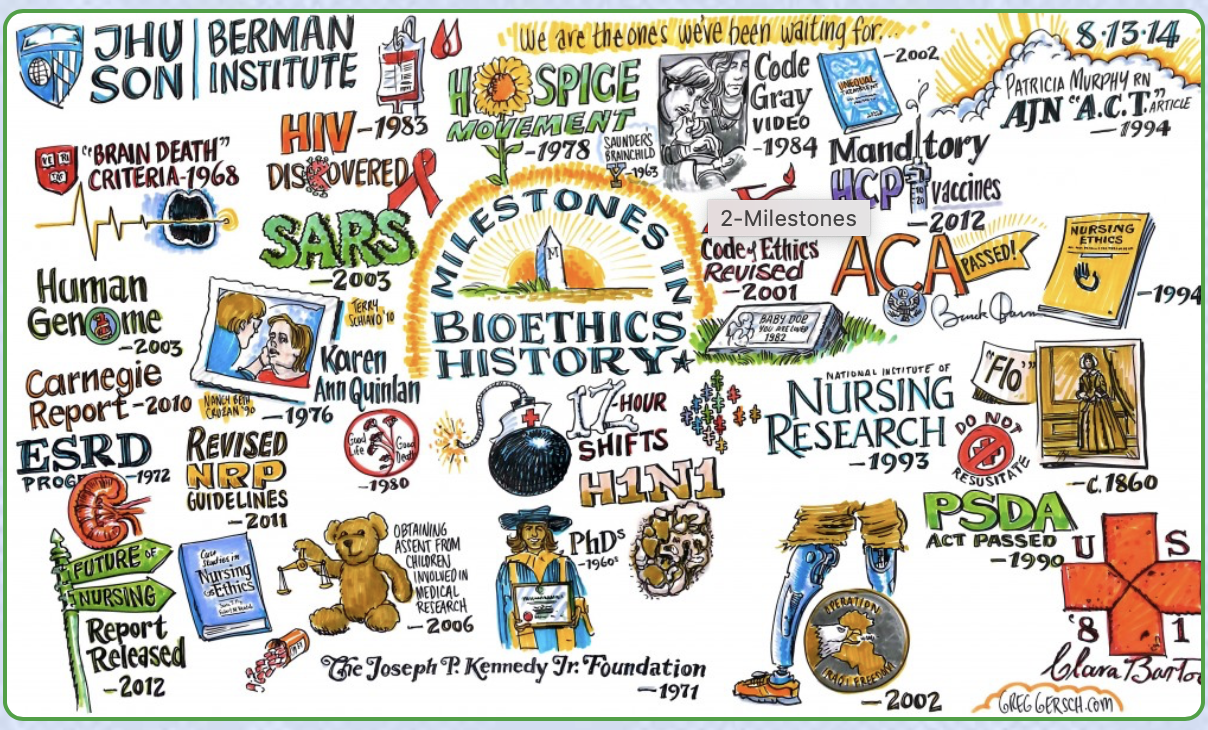NURSING ETHICS FOR THE 21ST CENTURY
In August 2014, 50 nursing leaders came together in Baltimore for a summit meeting on Nursing Ethics for the 21st Century. They had set for themselves an ambitious agenda that could culminate in changing the nation’s health care culture so that it more strongly supports basic ethics principles and more effectively enables nurses to practice more ethically. That long-term process starts with changing work environments for nurses across the board.
For many reasons, the environments in which nurses work are changing rapidly, yet one core principle holds constant: nurses’ desire to serve their patients, families, and communities while fulfilling nursing values. These systemic changes create new opportunities for organizational arrangements and work designs that enhance the practice of nursing and ensure that the next generation of nurses can have meaningful careers in service to others.
While many observers of U.S. health care lament what is broken about our system, the summit participants concentrated on describing ways in which nursing as a profession could have a positive influence in four critical domains: clinical practice, education, research, and public policy. They laid out a specific blueprint and identified initial steps, which can be found on this website. And they made commitments to carry on this work—to themselves, to each other, and to the profession they revere.
Click here for Shaping Nursing Ethics for the Future, recent article in nursezone.com.
Eight Key Assumptions
- In all settings in which nurses work, ethical challenges are embedded in everyday practice
- The need to strengthen the ethical foundation of nursing is urgent, particularly in light of pressures that threaten the integrity of individual nurses, the profession, and the people they serve
- The ANA Code of Ethics is foundational to understanding the ethical landscape for nurses, and serves as an invaluable resource and guide for how nurses carry out their professional ethical obligations
- Many ethical pressures arise more from disparities in the human resources, social capital, and financial resources available across the system (many of which result from resource allocation decisions and waste, rather than from resource scarcity) and contribute to persistent problems in access to care
- Moral distress is a pervasive reality for nurses when they are unable to translate their moral choices into action because barriers prevent them from practicing in accord with their values
- Nurses must define the boundaries of their professional responsibility with inter-professional colleagues in the environments where they practice
- Nurses are ideally situated to lead and contribute to contemporary models of care delivery, policy, research, and education [see The Future of Nursing: Leading Change, Advancing Health]
- Efforts to improve the ethical environment for nurses have a direct impact on the quality of care provided to patients and families and the sustainability of the health care system
